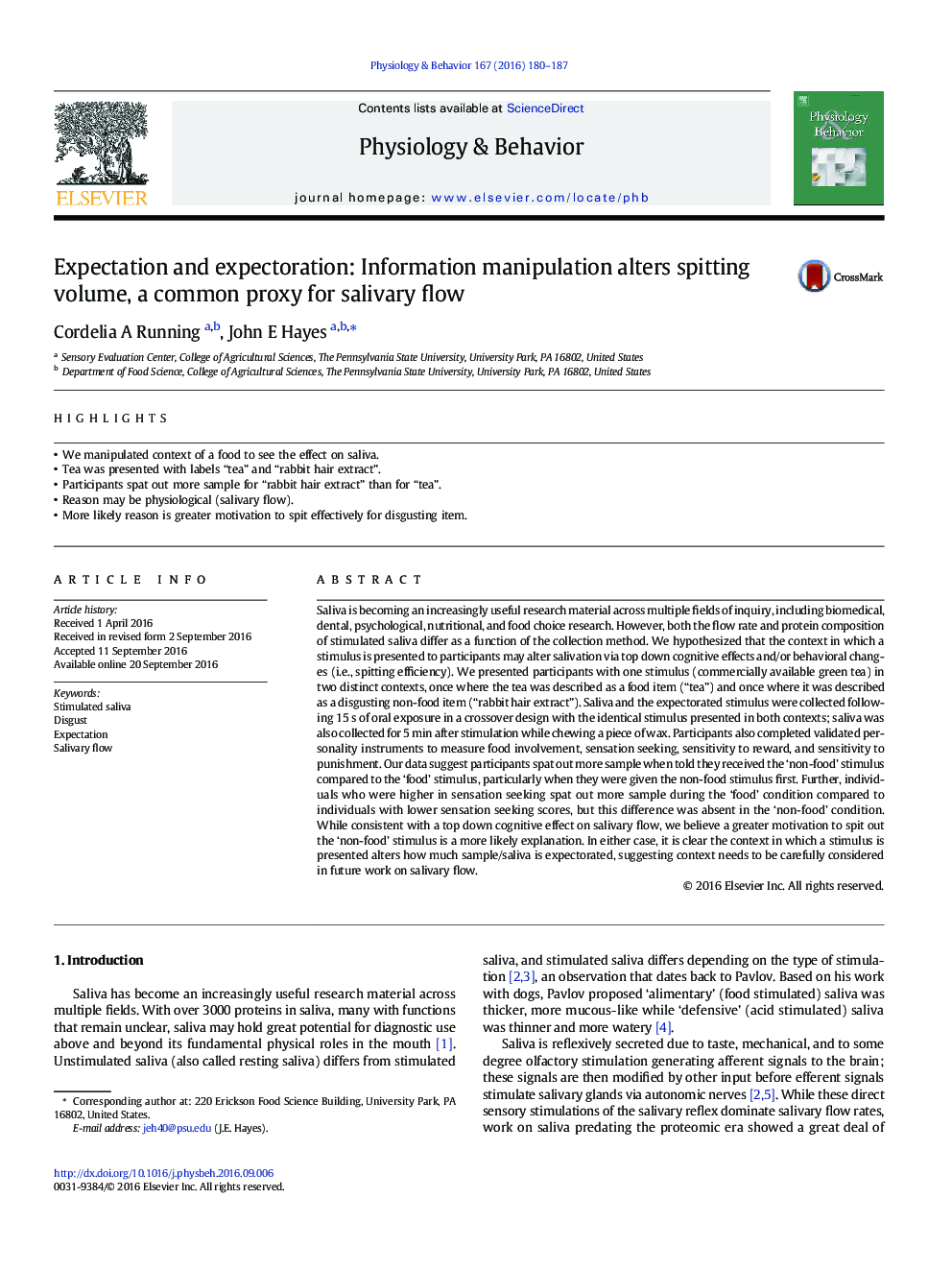| کد مقاله | کد نشریه | سال انتشار | مقاله انگلیسی | نسخه تمام متن |
|---|---|---|---|---|
| 5922502 | 1571152 | 2016 | 8 صفحه PDF | دانلود رایگان |
عنوان انگلیسی مقاله ISI
Expectation and expectoration: Information manipulation alters spitting volume, a common proxy for salivary flow
ترجمه فارسی عنوان
انتظار و ردیابی: دستکاری اطلاعات تغییر حجم تفریق، یک پروکسی رایج برای جریان بزاق
دانلود مقاله + سفارش ترجمه
دانلود مقاله ISI انگلیسی
رایگان برای ایرانیان
کلمات کلیدی
بزاق تحریک شده نفرت، انتظار، جریان بزاق،
موضوعات مرتبط
علوم زیستی و بیوفناوری
بیوشیمی، ژنتیک و زیست شناسی مولکولی
فیزیولوژی
چکیده انگلیسی
Saliva is becoming an increasingly useful research material across multiple fields of inquiry, including biomedical, dental, psychological, nutritional, and food choice research. However, both the flow rate and protein composition of stimulated saliva differ as a function of the collection method. We hypothesized that the context in which a stimulus is presented to participants may alter salivation via top down cognitive effects and/or behavioral changes (i.e., spitting efficiency). We presented participants with one stimulus (commercially available green tea) in two distinct contexts, once where the tea was described as a food item (“tea”) and once where it was described as a disgusting non-food item (“rabbit hair extract”). Saliva and the expectorated stimulus were collected following 15Â s of oral exposure in a crossover design with the identical stimulus presented in both contexts; saliva was also collected for 5Â min after stimulation while chewing a piece of wax. Participants also completed validated personality instruments to measure food involvement, sensation seeking, sensitivity to reward, and sensitivity to punishment. Our data suggest participants spat out more sample when told they received the 'non-food' stimulus compared to the 'food' stimulus, particularly when they were given the non-food stimulus first. Further, individuals who were higher in sensation seeking spat out more sample during the 'food' condition compared to individuals with lower sensation seeking scores, but this difference was absent in the 'non-food' condition. While consistent with a top down cognitive effect on salivary flow, we believe a greater motivation to spit out the 'non-food' stimulus is a more likely explanation. In either case, it is clear the context in which a stimulus is presented alters how much sample/saliva is expectorated, suggesting context needs to be carefully considered in future work on salivary flow.
ناشر
Database: Elsevier - ScienceDirect (ساینس دایرکت)
Journal: Physiology & Behavior - Volume 167, 1 December 2016, Pages 180-187
Journal: Physiology & Behavior - Volume 167, 1 December 2016, Pages 180-187
نویسندگان
Cordelia A Running, John E Hayes,
